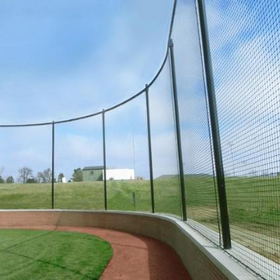Choosing the right batting cage twine size is crucial for creating a safe and durable practice space for baseball or softball players. When selecting the twine size, there are a few key factors to consider, such as the material, thickness, and strength.
First, you should consider the material of the twine. Nylon and polyethylene are the most commonly used materials for batting cage twine. Nylon is more durable and has a higher tensile strength and highly recommended for indoor hitting facilities, while high density polyethylene (HDPE) is UV resistant, more affordable and more lightweight than nylon.







Leave a comment